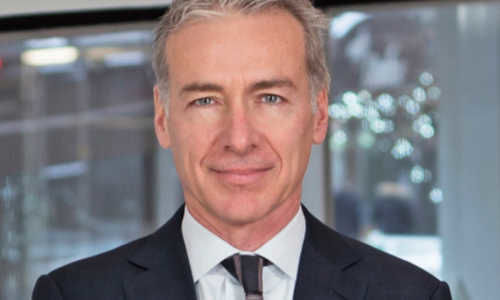Traditional finance fights with tech firms for the brightest graduates. Swiss bank UBS hit upon one theme which has its human resources department groaning under the weight of job applications.
The Zurich-based bank in putting sustainability at the center of its asset management arm, run by Ulrich Koerner. Three years ago, the bank poached the CEO of specialist asset manager RobecoSam, Michael Baldinger, as its head of sustainable and impact investing.
Baldinger's job? «Michael, make us the leader in this field» UBS Chairman Axel Weber told him. «We have the leading sustainable investing platform in the market today,» Baldinger told journalists in Zurich.
Hardboiled Business Case
UBS doesn't want to forgo performance in its save-the-planet push: it doesn't exclude securities from its actively-managed funds when baking in environmental, social, and governance criteria. Instead, UBS argues it is better equipped for long-term risks thanks to the more thorough vetting of stocks and bonds by its portfolio managers.
«Only if you see this as a business case – cost versus revenue – you put the necessary resources into place to come up with solutions for your clients,» Baldinger says. «We look at it as a really hard business case.» Whatever the motivation, the former trader and investment banker argues that capital markets are the right way to meet the United Nation's Sustainable Development Goals that UBS has signed on for.
«Silicon Valley of Finance»
The proof: no investment class is growing faster than sustainable investing (albeit from a low base), according to Baldinger. «Capital markets, the free market are the most powerful transmission mechanism,» he says.
«It's is not just the fastest growing at UBS but also outside, in the market place. It's also the most innovative. This is the Silicon Valley of finance, what we see here,» he said. UBS' ability to depict precise metrics on sustainability within portfolios is a competitive advance, according to Baldinger.
Draw in Recruiting Push
The majority of large institutional investors believe ESG criteria will outstrip traditional investment criteria in the next five years, according to an UBS study cited by Baldinger and Francis Condon, a climate expert at the bank.
Besides clients finding the topic attractive, it has proven a major draw with employees. UBS, like most traditional finance firms, competes fiercely with tech firms to hire the most talented graduates.
Glut of Job Applicants
When the dot-com bubble gained in appeal in the 1990s, Wall Street responded by relaxing its suit-and-tie dress code. «I don’t know how many clothes you can take off to attract the best people,» he jokes. «But I can tell you, sustainability andimpact investing is such an attractive topic to have. That’s why its also important for us to be the leader in this field because it attracts a lot of smart people.»
Baldinger said that for the 20 new jobs created in his unit in the last nine months, UBS was flooded with thousands of job applications. The glut of submissions was heavy enough to spark complaints from the Swiss bank's human resources department. «And these are not just smart kids from the best schools, these are also internal people, senior people who want to be part of this because it has meaning, it’s fast growing, its innovative.»


































